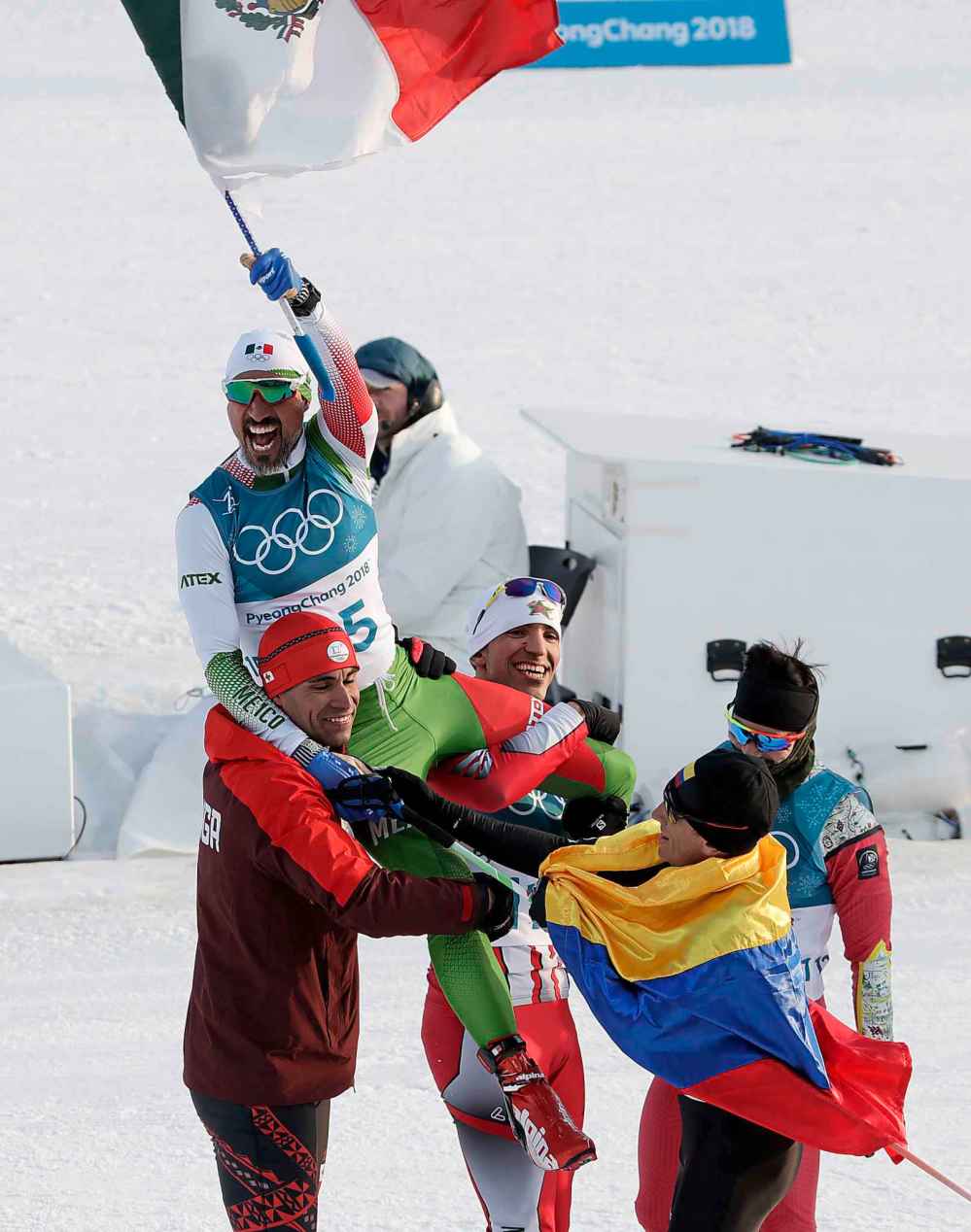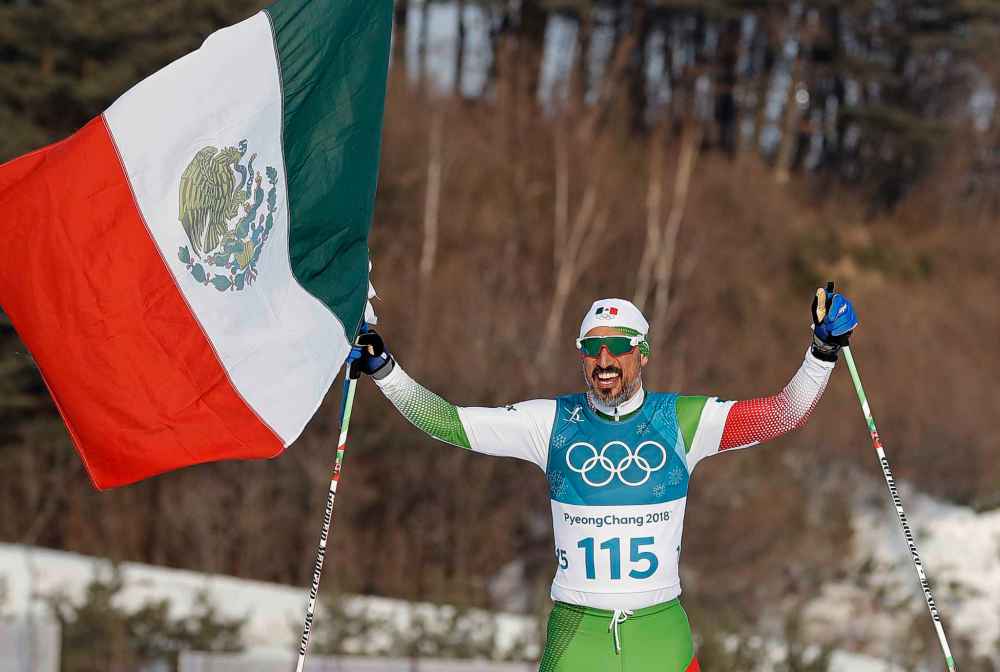Canada needs to pick up the pace
Advertisement
Read this article for free:
or
Already have an account? Log in here »
To continue reading, please subscribe:
Monthly Digital Subscription
$1 per week for 24 weeks*
- Enjoy unlimited reading on winnipegfreepress.com
- Read the E-Edition, our digital replica newspaper
- Access News Break, our award-winning app
- Play interactive puzzles
*Billed as $4.00 plus GST every four weeks. After 24 weeks, price increases to the regular rate of $19.95 plus GST every four weeks. Offer available to new and qualified returning subscribers only. Cancel any time.
Monthly Digital Subscription
$4.99/week*
- Enjoy unlimited reading on winnipegfreepress.com
- Read the E-Edition, our digital replica newspaper
- Access News Break, our award-winning app
- Play interactive puzzles
*Billed as $19.95 plus GST every four weeks. Cancel any time.
To continue reading, please subscribe:
Add Free Press access to your Brandon Sun subscription for only an additional
$1 for the first 4 weeks*
*Your next subscription payment will increase by $1.00 and you will be charged $16.99 plus GST for four weeks. After four weeks, your payment will increase to $23.99 plus GST every four weeks.
Read unlimited articles for free today:
or
Already have an account? Log in here »
Hey there, time traveller!
This article was published 16/02/2018 (2898 days ago), so information in it may no longer be current.
GANGNEUNG, South Korea — We’ve reached the halfway mark at the 2018 Winter Olympics and the news has been good for Canada — and great for Manitoba.
With 13 medals — four gold, five silver and four bronze — as I write Saturday morning Korea time, Canada is tied for third in the medal standings.
That’s good, even very good. But it’s well behind the 19 medals Norway has racked up so far and Canada’s goal of finishing first overall is slipping away unless we make a big push in Week 2.
To be fair, first place was always an ambitious goal and Own the Podium CEO Anne Merklinger admitted as much when she said prior to these Games she felt this was “probably our strongest team ever.”
The general consensus prior to the Games was if everything went right, Canada had a shot to win a record 30 medals.
But not everything has gone right. Cross-country skier Alex Harvey, for instance, was considered a medal lock but has posted just a seventh and an eighth in his two races up to this point. And curler Rachel Homan’s 0-3 start to the Olympic round robin has Canada’s hopes for a medal in women’s curling hanging by a thread.
Still, 30 medals remains attainable, but only if we pick up the pace in the second half of these Games.
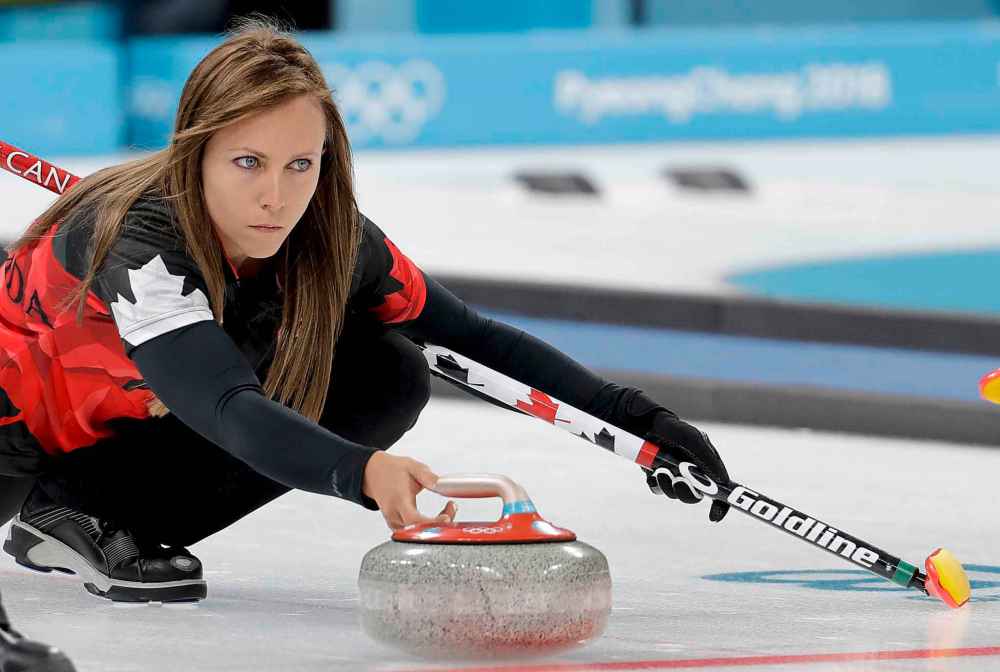
As for Manitoba’s contingent, what’s not to like?
Winnipeg’s Kaitlyn Lawes and Winnipeg-born John Morris won gold in mixed doubles curling.
Winnipeg-born Eric Radford won a gold in team figure skating and a bronze in pairs.
And our five Manitoba hockey players — Ste. Anne’s Bailey Bram and Jocelyn Larocque and Mallard’s Brigette Lacquette with the women’s team and Morden’s Chay Genoway and Oakbank’s Quinton Howden with the men’s team — have all yet to be beaten as of this writing, with the women’s team going 3-0 in pool play and the men opening their tournament with a dominating 5-1 win over Switzerland.
Speedskater Heather McLean is the only other Manitoban here. She was qualified to race in both the 500 metres and 1,000 but ultimately only raced in the latter, finishing 25th.
With our hockey players very much alive for medals, it’s entirely possible that six of seven Manitobans — and eight of nine Manitobans and Manitoba-borns — will return home with Olympic medals.
Here’s some other highlights and lowlights that caught my eye during the first week:
That burned-rock controversy involving Homan on Friday would be a one-paragraph aside at any bonspiel except for this one.
Homan, in case you missed it, removed a Danish rock from play after a Denmark sweeper admitted to imperceptibly nudging it while it was running. With the rock removed, Canada went on to score a four-ender and take control of a game they’d been losing until that point.
While Homan had the right to remove the Danish stone, the first page of the rules of curling discusses the “Spirit of Curling” for a reason: because there’s a sense of fair play in curling almost unique in sports.
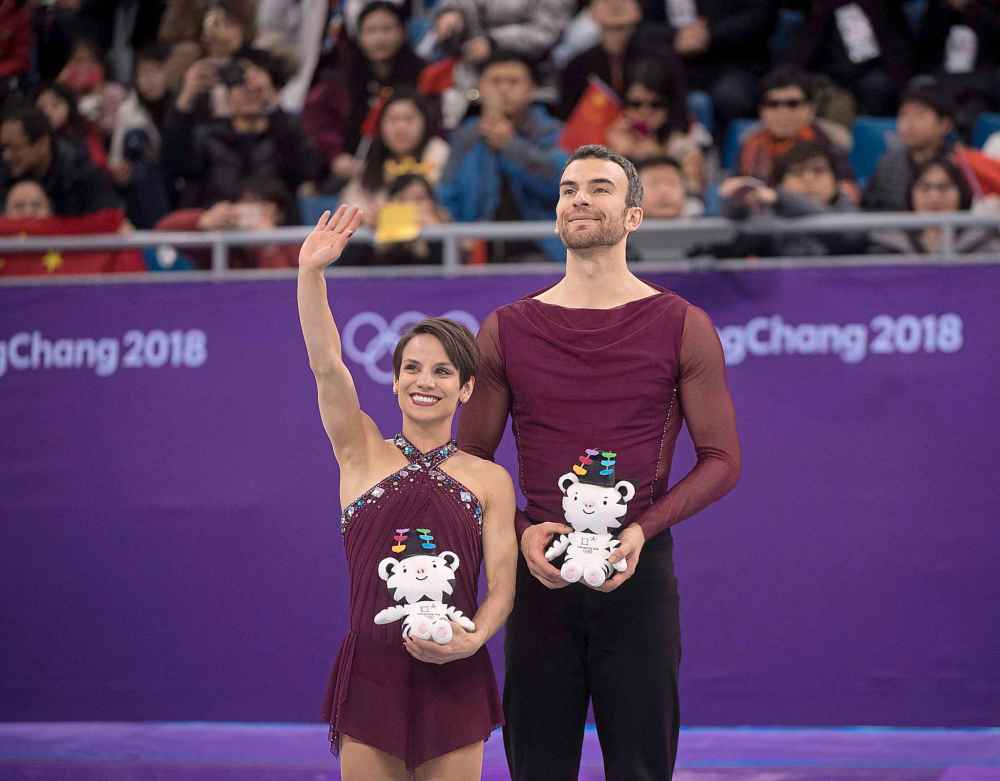
Given the imperceptible effect the nudge had on the Danish running stone, fair play should have dictated that Homan either leave the rock where it was or slightly adjust it’s positioning and that of the contact stone.
She punted it into the corner instead and has gotten killed in the media and social media ever since.
But lost in all the furor has been the fact that in the end, justice — karmic and otherwise — was served when Homan missed her final shot of the game and ultimately lost 9-8 Denmark to fall to 0-3.
So to review: Canadian skip flouts rules of etiquette. Canadian skip loses game. And?
If Homan had gone on to beat Denmark, I agree her conduct would be an issue of some consequence. But in the end, the curling gods extracted their own punishment and Homan’s suspect etiquette didn’t change the outcome of a game she was trailing when she removed the rock and was trailing at game’s end.
No harm, no foul — that’s also in the Spirit of Curling.
The big story isn’t that Homan removed that Danish rock; the big story is the gold-medal favourite from Ottawa is in serious jeopardy of becoming the first Canadian ever not to medal in curling at the Olympics.
The other stuff about that burned rock is just noise at an event where the smallest things can get torqued beyond all recognition in the intense media spotlight.
Xxx
While Homan wasn’t making any apologies for her conduct, just about everyone else here has been.
In what’s been dubbed the ‘Apology Olympics,’ almost not a day has gone by here without someone tripping on their tongue and then having to issue an apology about it.
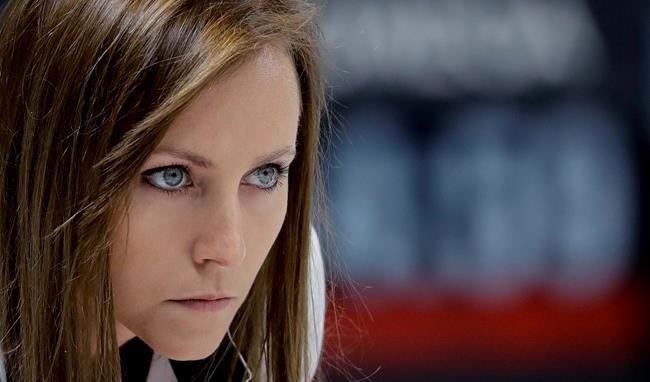
Washington Post columnist Jerry Brewer summarized the parade of apologies the other day:
“Shaun White is sorry for trivializing his sexual harassment lawsuit and dubbing it “gossip.” NBC analyst Bode Miller is sorry for mansplaining that Austrian skier Anna Veith is a struggling former gold medallist because she got married. NBC’s Katie Couric is sorry for insulting the Dutch, who have the world’s greatest speedskating tradition, by saying that skating is “an important mode of transportation” in the Netherlands when canals freeze, making it seem like the poor folks put on the blades just to go to work and school during winter. Joshua Cooper Ramo is sorry (and out of a job at NBC) for praising Japan, which occupied Korea from 1910 to 1945, for its role in Korea’s transformation.
“The Canadian Olympic Committee is sorry about a heated “cafeteria discussion” between a member of its team and a Russian. Lee Hee-beom, the president of the Pyeongchang Games organizing committee, is sorry for initially excluding Olympians from Iran and North Korea from the more than 4,000 participants who received $1,000 Samsung smartphones as gifts because of international sanctions.”
Xxx
I am sitting 60 kms from the North Korea border as I write this and I have to admit that while flying over here, I wondered what security would be like at an Olympic Games being held so close to a hostile foreign power who just recently acquired nuclear capabilities.
The answer? Security here has been just enough to make everyone comfortable and not so much to make anyone uncomfortable.
Accessing venues over here really isn’t much different than going to a Jets game — you walk through a metal detector, security checks through your bag and you’re on your way. The lineups have been short and efficient, with the exception of the Opening Ceremonies, which was a nightmare like every Opening Ceremonies I’ve ever been to.
Indeed, despite its proximity to North Korea and the current high level of geo-political tension around the globe, the security here has actually been a lot mellower than what I saw in Salt Lake City or Torino, the two other Winter Games I’ve covered.
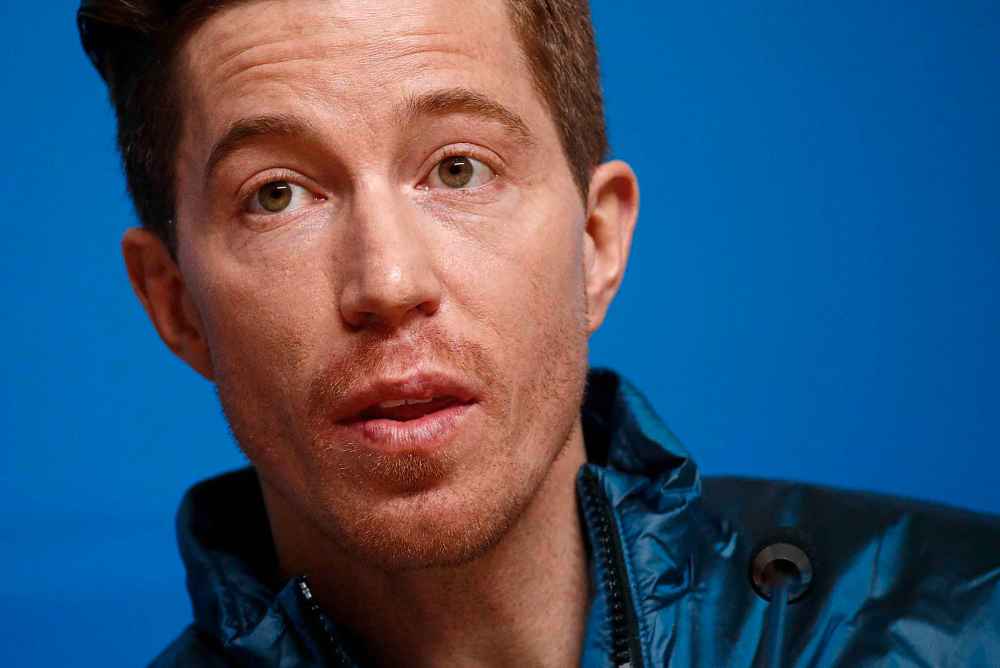
The ashes of 9/11 were still warm when they held the Salt Lake City Games and the Americans did what Americans have been doing ever since — turned the whole place into an armed camp.
The security in Torino, on the other hand, was just poorly organized. You could stand in line for an hour one day and — true story — walk through unchecked another day because the security guys simply never showed up for work that day.
Compared to all that, the South Koreans have found the perfect Goldilocks level of security. And they’ve also introduced a cool technological wrinkle — my accreditation here has a special chip in it that allows me to access the Olympic media village without even displaying it.
I simply walk through security and the chip in the pass activates a large display screen that pops up with my photo and accreditation when I pass through, allowing the security guard to match my face with the one on the screen.
This has been no small convenience for me over here. This place is insanely windy all the time and I learned on day one that if you actually wear your credential around your neck, the wind catches it like a sail and it very quickly goes from being a credential to being a noose.
xxx
We can debate whether Russian athletes should have been allowed to compete here under a goofy scarlet letter – Olympic Athletes from Russia – or should have been banned entirely as punishment for the state-sponsored doping that went on in Sochi.
But wherever you stand on that issue, it is outrageous that the Russian men’s hockey team here is being allowed to wear red and white jerseys.
Under the IOC directive, Russian athletes here are supposed to be wearing neutral coloured uniforms. And for the most part they are – their mixed doubles curlers, for instance, wore simple black and white uniforms. There are other variations – grey and white, blue and white etc.
But it’s only the Russian hockey team – at least that I’ve seen – that’s being allowed to wear a uniform that looks almost exactly like their most iconic uniform of all – the old Soviet Central Red Army uniforms.
Think it’s a coincidence that the IOC made that allowance for what is Vladimir Putin’s most favourite team?
xxx
The Koreans like to drizzle honey on their pizza.
Not since a Montrealer introduced me to the unmitigated joy of dipping French fries in mayonnaise have I encountered a more surprisingly delicious accompaniment.
Try it tonight. You’ll see.
Xxx
Toronto Sun columnist Steve Simmons wrote a column after Lawes and Morris won gold in mixed doubles curling in which he pointed out not all gold medals are created equal and suggested there’s something a little suspect in a medal that was won by two teammates who “practised once for half an hour in Winnipeg, before dominating the field here.”
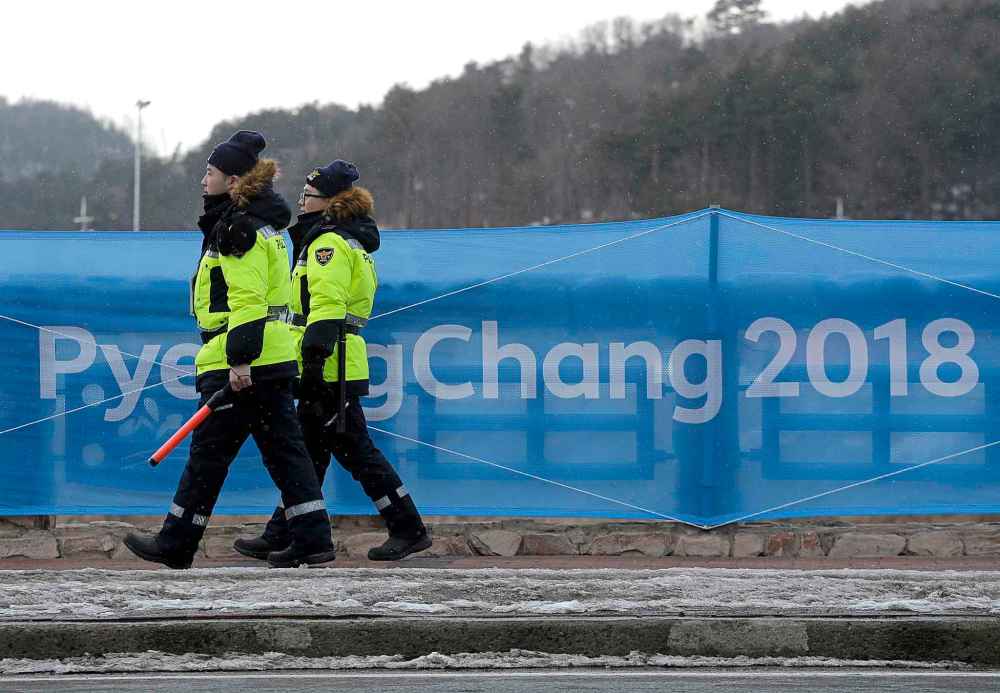
Simmons suggested mixed doubles and team figure skating, another fledgling event where Canada also won gold this week, are both Olympic contrivances. And while the country should be proud of those golds – and so too should the athletes who won them – Simmons argued we shouldn’t pretend they are on the same competitive plane as, say, the gold won by Canadian freestyle skier Mikael Kingsbury, who “has been participating on the World Cup circuit for years, dominating it, and on the largest day of his sporting life, he came through wonderfully under phenomenal pressure.”
I wouldn’t have quite put it the way Simmons did. And Lawes and Morris did more than practice just once in Winnipeg to get here – they won the mixed doubles trials in Portage.
But Simmons makes a valid point: not all gold medals are created equal and we shouldn’t pretend that they are. There are some Olympic events that are marquee precisely because they have such a long history and are so insanely competitive.
Ask yourself this: What meant more to you in Vancouver – the gold medal we won in men’s hockey on Sidney Crosby’s golden goal or the gold we won in short track relay. It’s not even close and we’re deluding ourselves if we pretend all Olympic accomplishments are the same.
But curling fans didn’t see it that way this week. I ran into Simmons in the pressbox of that Canada-Switzerland hockey game here Thursday night and he told me he had received over 500 emails from irate curling fans ripping him a new one.
And the team figure skating fans? Simmons said he got one email of complaint – and a couple of others from some figure skaters who thought he made a good point.
Curling fans: they’re all about the etiquette until someone has an opinion different than their own.
Xxx
In other Toronto media news, word out of here this week was that the Toronto Star – Canada’s largest circulation newspaper – has decided that as a budgetary measure, they will no longer be sending beat reporters on the road to cover Toronto sports teams.
It is only in the newspaper industry that the solution to declining sales is always to make the product worse.
xxx
And finally: there’s been a string of amazing gold medal performances here over the first week, but my favorite Olympic moment wasn’t someone who finished first — it was someone who finished last.

Twenty-six minutes after the gold medal skier crossed the finish line of the men’s 15-km freestyle cross-country race on Friday, a Mexican skier named German Madrazo finally came into view.
Stumbling, badly winded and looking like he was barely able to keep his feet, Madrazo wouldn’t say die. And then, just as he approached the finish line, he skied over to a spectator, grabbed a Mexican flag and held it aloft as he limped over the finish line, the 116th and final skier to finish that day.
How slow was he? Even that shirtless dude from Tonga finished two places ahead of him.
Madrazo fell into the arms of some fellow competitors who’d gathered to wait for him and they hoisted him into the air in a scene that is surely coming soon to a Disney movie near you.
And with that, for one brief shining Olympic moment here, the last became first.
email: paul.wiecek@freepress.mb.ca
Twitter: @PaulWiecek
